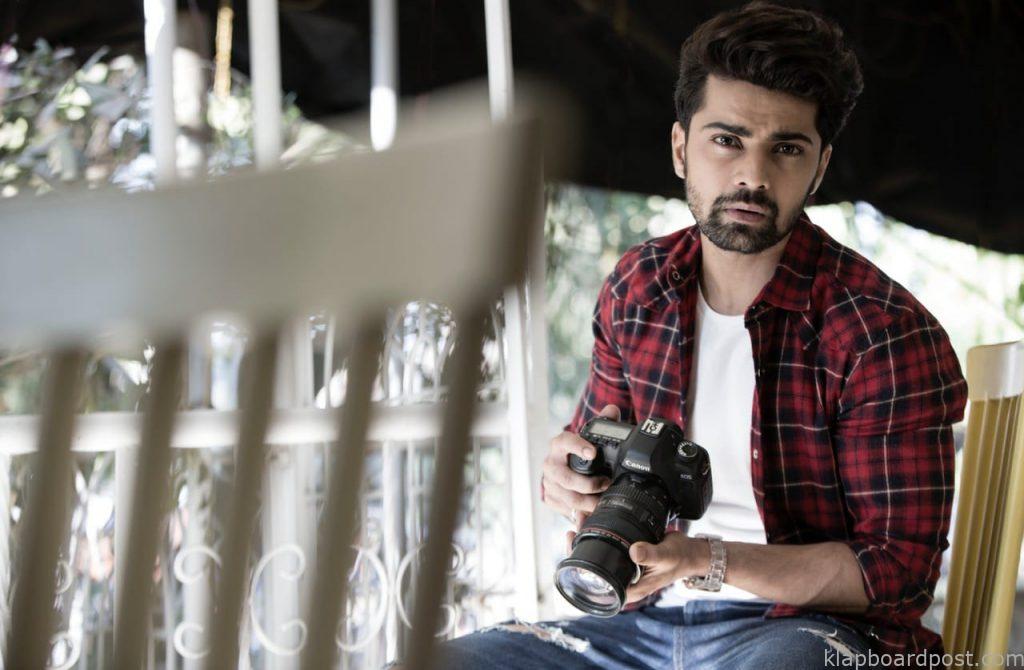Y.Sunita Chowdhary
When Shravan Reddy passed out of HPS and moved to Mumbai to pursue an acting career, he didn’t know anyone. Unlike others who did engineering and medicine, he opted to join FTII in Pune. “I thought I would be wasting my time. At that point of understanding I had, no one is going to ask me if I had my degree certificate if I were to become an actor. Some people are blessed, have it in them, some need formal training because your instincts don’t always work right. When it doesn’t you can depend on the craft. It gives you confidence and you need to work on it always as much as you can and keep interacting with people. Though you have the ammunition in hand, you still need to know which route to take.” he tells Klapboardpost.com.
He participated in Grasim Mr India contest, won the regionals to represent it in the national level in Mumbai. In this conversation here, he says the pandemic has changed everything in the entertainment industry, be it OTT platforms or mainstream cinema, people have begun to view things in a broader perspective. Nothing is bad or shouldn’t do anymore, there is an audience for every genre and people have realised the importance of strong content and that is final. His debut film Dirty Hari’s trailer is out and Shravan shares his thoughts.
Do a lot of people go to the theatre first before trying cinema?
After graduating from FTII or NSD, a stint in theatre helps you open your craft, removes fear when you face people directly. There is no action, cut and you can go on. It is difficult to get work immediately, so how do you as an actor improve your craft? You have to practice. A writer does his scripts, AD assists someone but an actor has no medium and theatre is the only option. It was like that till television became big. Television too till a point of time didn’t exist much, at least till one generation. Out of frustration, to vent out creative urges, people took TV offers. Now we have casting directors and talent management agencies. Earlier directors would come and see you in the theatre. You get work when you work in the theatre. You keep honing your craft doing what you like and might get noticed by someone at some point. It’s a win-win situation. As soon as you pass out of film school, do you get entry easily in theatre? I haven’t done much theatre. You create your own circle in FTII, one of your seniors who is doing theatre in Mumbai…when they know you are from their alma mater will at least meet you. The personal touch will be there always.

When did you want to move from TV?
I have assisted in movies when I came here, I have written my scripts. I keep doing it when I get time. Even recently, I finished a script in lockdown. I really never stayed long in Hyderabad when I wanted to be an actor. I made up my mind in class seven that I would be an actor and moved immediately after high school. Getting to do an audition 13 years back was difficult. It wasn’t open to newcomers. M S Raju saw my web series Thinkistan on MX Player and that is when I was offered this movie. I was here for 12 or 13 years and a web series happened last year. All these years, I worked for all the channels of India and only from last year onwards, was doing television as a lead. I never wanted to do television honestly. Mumbai teaches you to take steps that you don’t want to and I was getting TV opportunities on its own. I didn’t get into saas-bahu serials or daily soap (the usage of your craft is too less there) but I did youth-oriented stuff. In the opportunities I had, I picked the best and Man Marziyan on Star Plus got famous. I have been thinking every second I should move and in the last three years onwards I have decided that I will try and not do more TV. Fortunately, I got a web series and did a few.
Is getting an opportunity in Bollywood tough? You’ve been there for long now.
I come from a regular family where parents want their children to have a certain life. My parents are okay with me taking up films but they aren’t entirely kicked about it. Before I shifted here, I knew I would be running against time. Rather than get a degree which is of no use, I tried going to Mumbai to try my luck. I never did television continuously and I assisted, writing etc. I was switching between films behind the camera and television before the camera. I did it for many years and finally stopped watching TV. Why Bollywood? Getting a film in Telugu is equally tough. I never tried too much in Telugu and projects just didn’t happen. The South is a big industry, equally big and challenging.
You had no qualms doing Dirty Hari?
 When M S Raju narrated the story in Mumbai from frame one to last, I understood that intimacy and explicitness is part of the subject. The story worked for me in my head when he narrated. He did not include anything just for the sake of grabbing attention. It was happening organically from the character’s perspective. The traits or the pulse of the character is connected to what the youth has become in terms of cut-throat competition, morale and ambition. As a society, we humans are evolving, our funda keeps changing from generation to generation. What was a taboo earlier is not anymore. This guy in the story is street smart and extremely ambitious. If he wants to achieve something he doesn’t find anything wrong. It is about the entire journey of the boy and why he is called Dirty Hari. It subconsciously happens because of his ambition and the ambition lands him in a soup.
When M S Raju narrated the story in Mumbai from frame one to last, I understood that intimacy and explicitness is part of the subject. The story worked for me in my head when he narrated. He did not include anything just for the sake of grabbing attention. It was happening organically from the character’s perspective. The traits or the pulse of the character is connected to what the youth has become in terms of cut-throat competition, morale and ambition. As a society, we humans are evolving, our funda keeps changing from generation to generation. What was a taboo earlier is not anymore. This guy in the story is street smart and extremely ambitious. If he wants to achieve something he doesn’t find anything wrong. It is about the entire journey of the boy and why he is called Dirty Hari. It subconsciously happens because of his ambition and the ambition lands him in a soup.
Somewhere the audience is ready because it is the life they are leading. People might say we were exploring cinematic liberties to sell the plot, but there is a section of the youth who wants to see it. It reflects a certain mentality and their obsession to achieve material things. Here dirty is a metaphor. If you are thinking the trailer showing intimate scenes is dirty, it is just not that. It is just not on the bed, he can get dirty to achieve whatever he wants. That is his mind set and he has a background which leads him to behave the way he does.
Any awkwardness in doing the scenes, worried about being typecast?
We, fortunately, had a decent amount in time to know what we were meant to be doing. Once you understand the director’s vision, it becomes easy. It is actually a thin line. If it falls on one side, people will call it another movie. The heroines did their spade work too and were in sync when they came to the sets. We did workshops and were reading our lines. It wasn’t a big task. As far as producer M S Raju was concerned, he has been here for a few decades and the kind of cinema he did before was quite different. The director in him wants to probably connect with today’s youth. Every creative person wants acceptance and to be relevant to the contemporary generation. Risk of being typecast? The kind of scenes in the film you saw will work if there is a proper story and a drive of the character. It is a market jump because of the image I have after release and for the person who offers a similar story next. It is my responsibility to decide if I want to continue doing the same genre or something else. There are enough intelligent people who will not give me that kind of work, also there will be some who will be tempted to give identical stuff. As I said, it is my hands in which direction I’d like to go. I did good work in television and obviously my parents would want their own language people should know about their son.













